Bespoke furniture... solutions, not products!
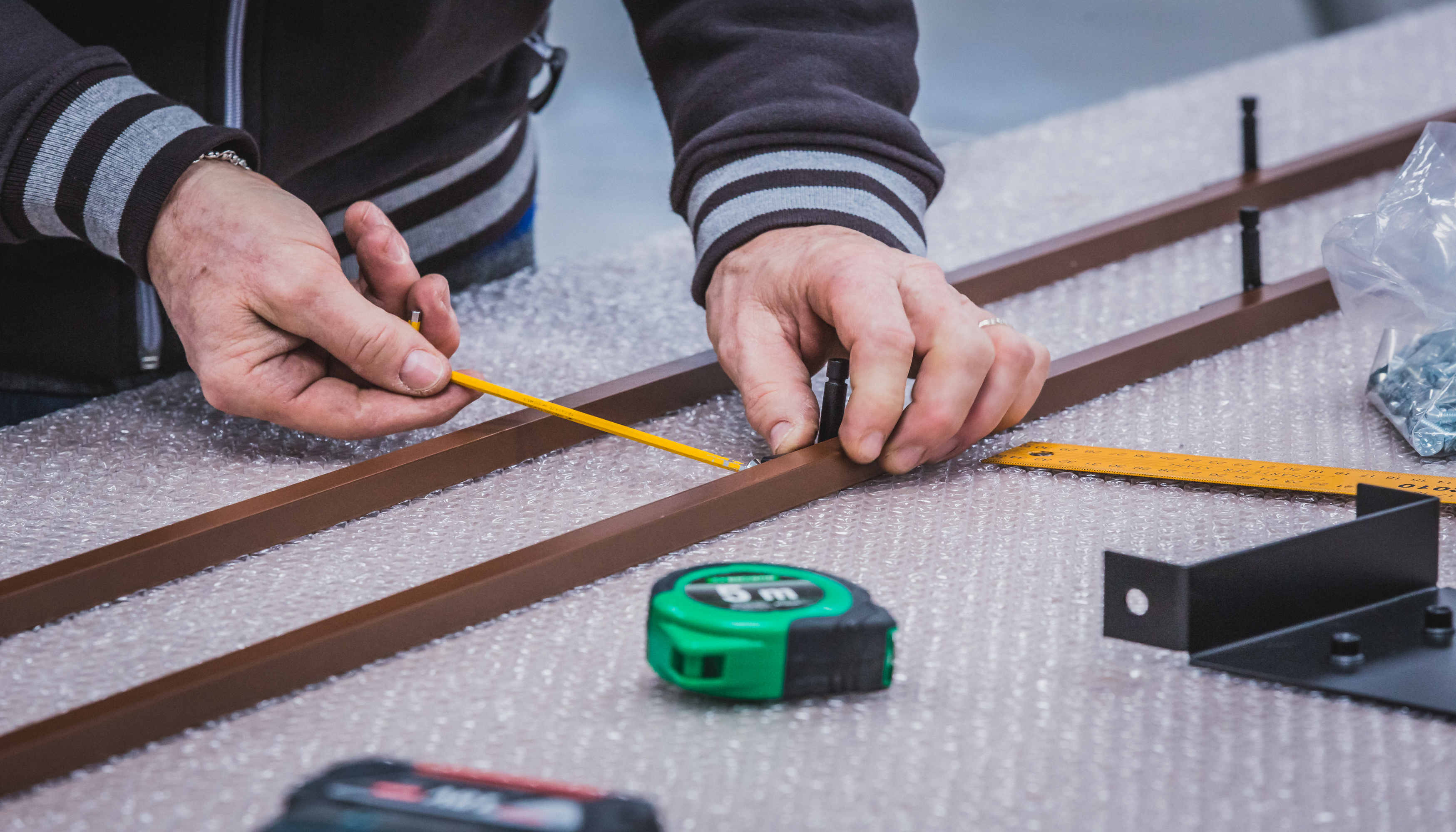
Since 2011, a number of companies have not just shifted their attention to production, but to their customers too.
Over the course of the last decade, the furniture sector has seen a rise in requests for customised furniture. In response to demand, a number of companies in this sector have started to personalise their products and offer customised services, but above all to offer bespoke products for their end customers.
An increasing number of brands in the retail sector are requesting unique and distinctive spaces that truly communicate their brand identity and enhance the products they display. A need to stand out from the competitors has resulted in requests for bespoke concepts that ultimately require tailor-made furniture to be designed and produced for them.
In this article, we talk about bespoke furniture. In particular, we will take a look at what is involved in producing tailor-made furniture, which methods and processes work best and what skills are fundamental for a successful end result.
Contents:
- What does working in the bespoke furniture world actually involve?
- What does creating bespoke furniture mean to Effebi?
- Case Study: SIMON'S
What does working in the bespoke furniture world actually involve?
For those working in the sector, creating bespoke items of furniture is not just about creating individually-designed products, it is also about providing answers and solutions that meet the customer’s needs.
Companies are both product manufacturers and – to an even greater extent - service providers. They are the specialised partners who are involved in the entire project from start to finish, from the initial concept to production, delivery and installation. The companies communicate with the customer, to listen to and satisfy their requests, as well as to resolve any issues that may arise at any point in the entire process. This is often a complex task that requires a team of specialised technicians, a flexible organisational structure and a project manager. A combination of factors that is created for a single goal: a successfully-completed project and a satisfied customer.
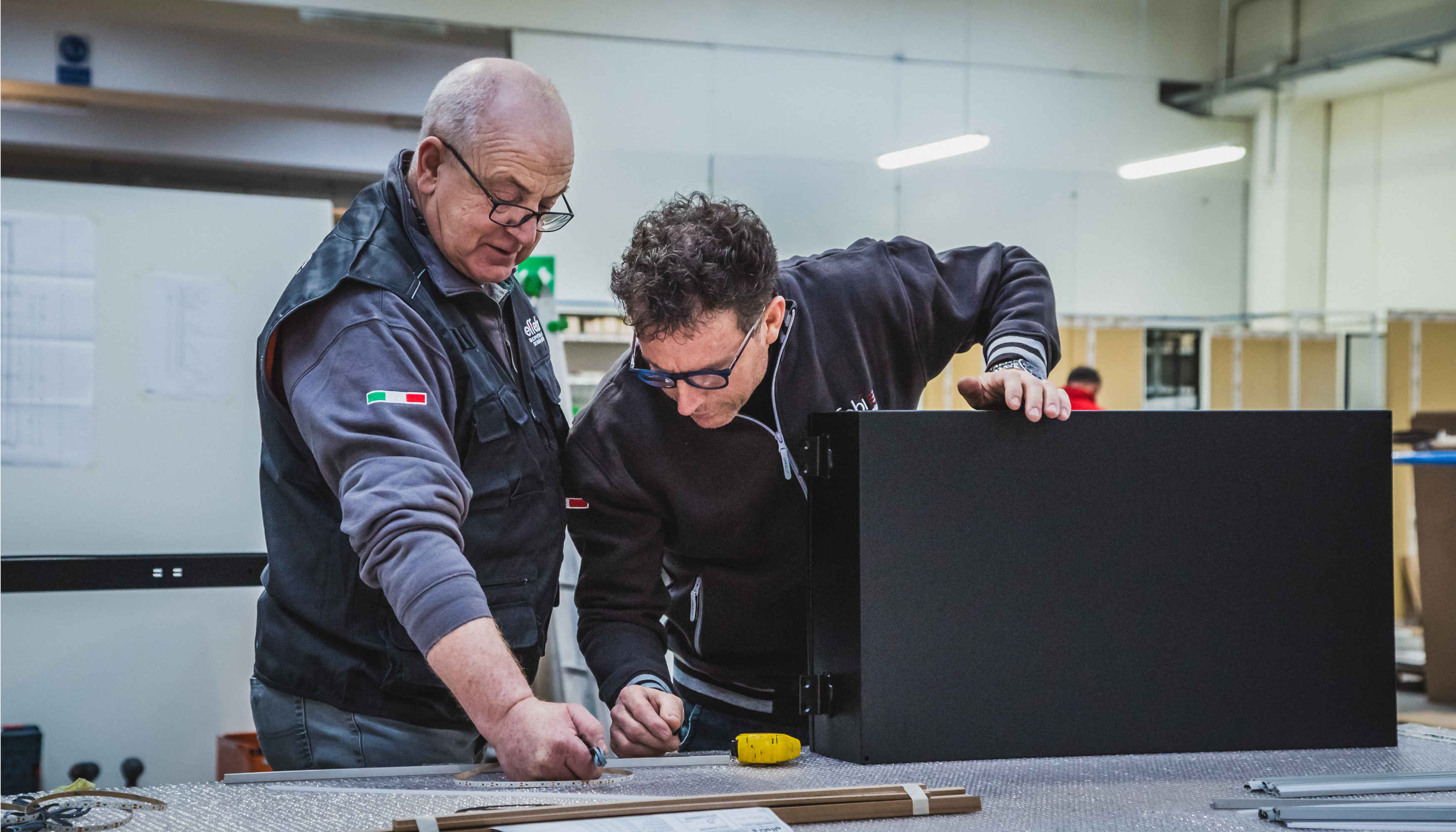
Creating bespoke products for customers is all about building a relationship that is direct, built on trust and successfully managed.
For the customer, on the other hand, having a product that has been designed and made to their specific needs conjures up a range of emotional factors:
- Involvement: customers are involved in bringing the project to fruition, so it is important to consider their needs and to provide the most appropriate solution;
- Satisfaction: this is all about providing customers with what they need;
- Style: bespoke products should fully reflect a customer's style;
- Self-expression: the final product is the result of a partnership between the customer and company and should represent the customer, their personality and brand identity;
- Creativity: bespoke products are the result of a creative idea brought to the table by either the customer or an architecture firm, which is then transformed into a concrete solution;
- Uniqueness: some customers feel the need to stand out from the crowd by creating unique products that have been designed and manufactured solely for them.
Creating bespoke products requires the company to actively listen to the customer and establish a direct dialogue with the manufacturer.
The customer ultimately becomes a prosumer and the company a partner with whom they develop the most suitable solution to their needs and wishes.
Satisfying customers goes beyond simply selling them a product, it’s about creating loyalty, establishing an active dialogue to the point of transforming them into a company promoter and thus encouraging word of mouth. Word of mouth (or WOM) is a powerful tool that allows companies to attract new customers and still has a very important place in the B2B market.
In fact, according to research published on e-marketer, 95% of decision makers within companies try to get information on products and services based on the opinions of experts in the field, colleagues and online reviews.
This information underlines that customer satisfaction and appropriate relationship management, including the post-sales phase, are fundamental when it comes to winning new potential contacts.
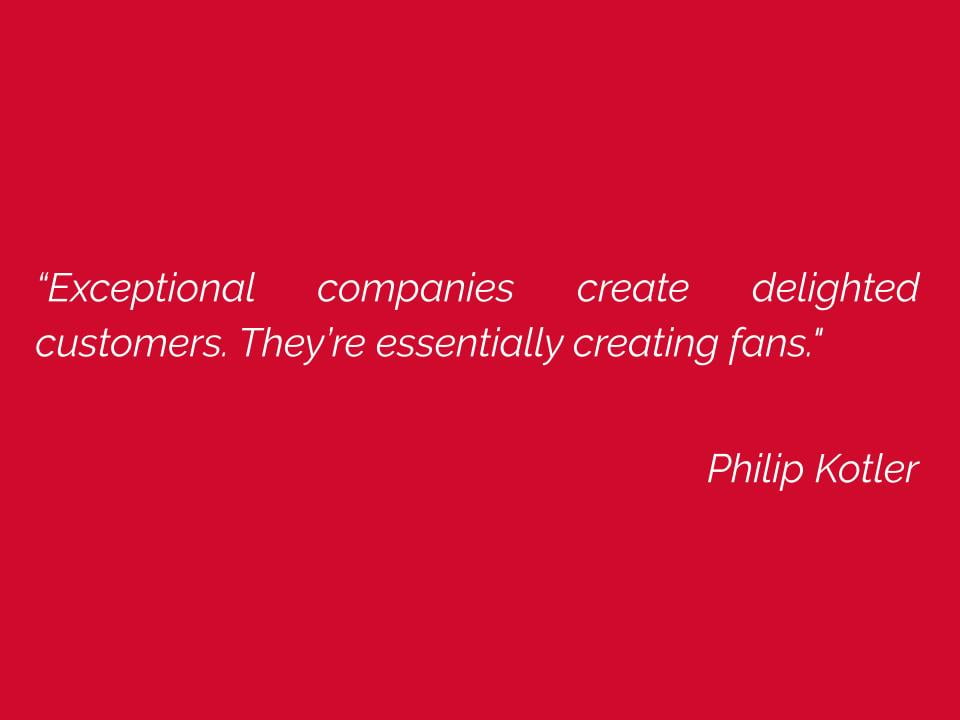
A company’s marketing department is an important and strategic resource, which must study and analyse customer needs while also making use of Big Data and Analytics. By adopting these processes, companies can access information published by customers on social media, the internet and search engines. Strategically employing these tools allows companies to predict emerging desires and needs to be met, giving them the possibility to get an edge on their competitors.
What does creating bespoke furniture mean to Effebi?
Effebi was founded over 40 years ago and originally sold a range of standard products. However, over the past 20 years, we have spread our wings and moved into bespoke production. Over time our expertise has grown and our achievements are testament to our abilities.
Developing a bespoke product does not just require know-how and technical skills, it involves organisation, problem-solving, flexibility, speed and good service. This is all made possible by the people on our team, who are ready to tackle the next challenge each time a new project lands on our desk.
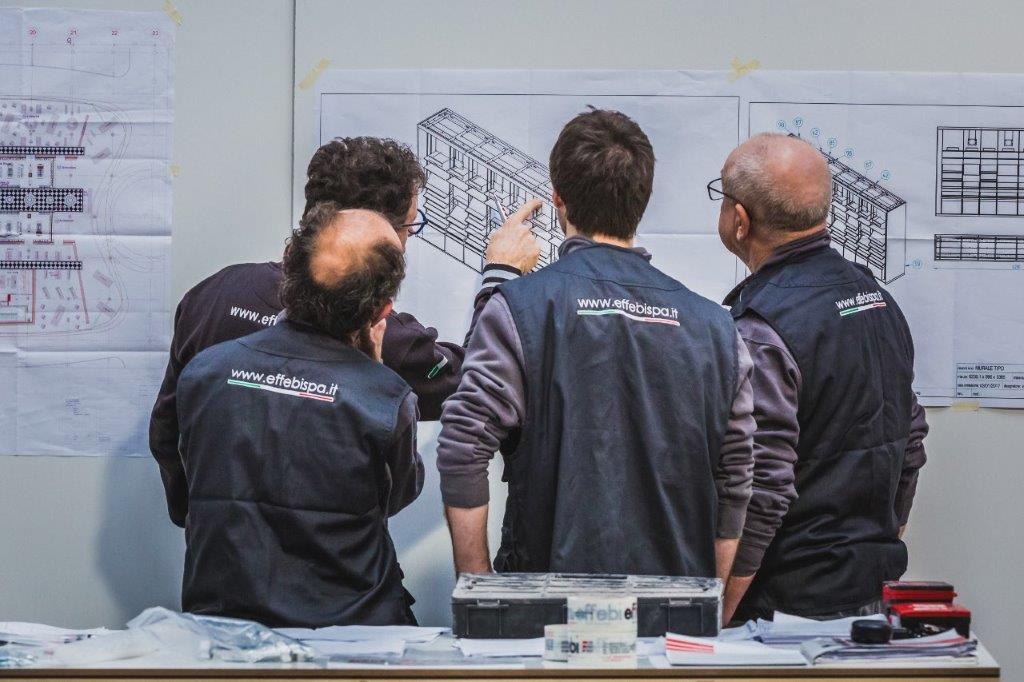
Here's how the Effebi order process works:
- Concept design and space planning: we create a concept for the customer's sales points, i.e. choosing furniture and any other design elements that contribute towards the creation of the sales space and help to build brand identity (colours, lighting, materials...).
- Executive technical planning: this is the real beating heart of our company. It is during this stage that the architectural project actually becomes a reality and we seek out the best technical solutions to produce the furniture. The R&D department is strategic in its search for new materials, processes and technologies so that we can suggest innovative solutions to our customers in order to best meet their needs.
- Mockup: the customer gets the opportunity to see samples with his own eyes for the new sales points opening. Any modifications and improvements are also carried out together during this phase.
- Production: furniture is produced to the highest standard in compliance with time and costs constraints.
- Shipping and installation: our products are carefully packaged and shipped. Once at their destination, each component is assembled by a highly specialised team able to solve any problems on site.
What makes Effebi stand out?
- Flexibility. Our dynamic and attentive approach means that we are always here to listen and respond to any needs. A tangible, real flexibility that is applied to all our business processes.
- Our speedy order-turnaround times mean that we can support customers through increasingly tight delivery schedules. We are always on hand to solve any issues that may arise during development or set-up, identifying solutions that guarantee an excellent final result.
- Our project management. PMs are the key to correct order management and are our customer contact points for planning, coordinating and controlling all processes. Thanks to our PMs, customers have a point of reference at the company who, in collaboration with the sales team, is able to manage the customer relationship and respond quickly to any requests or changes without compromising the final project outcome. This all contributes to customer loyalty which, as mentioned above, is a key success factor in the B2B world.
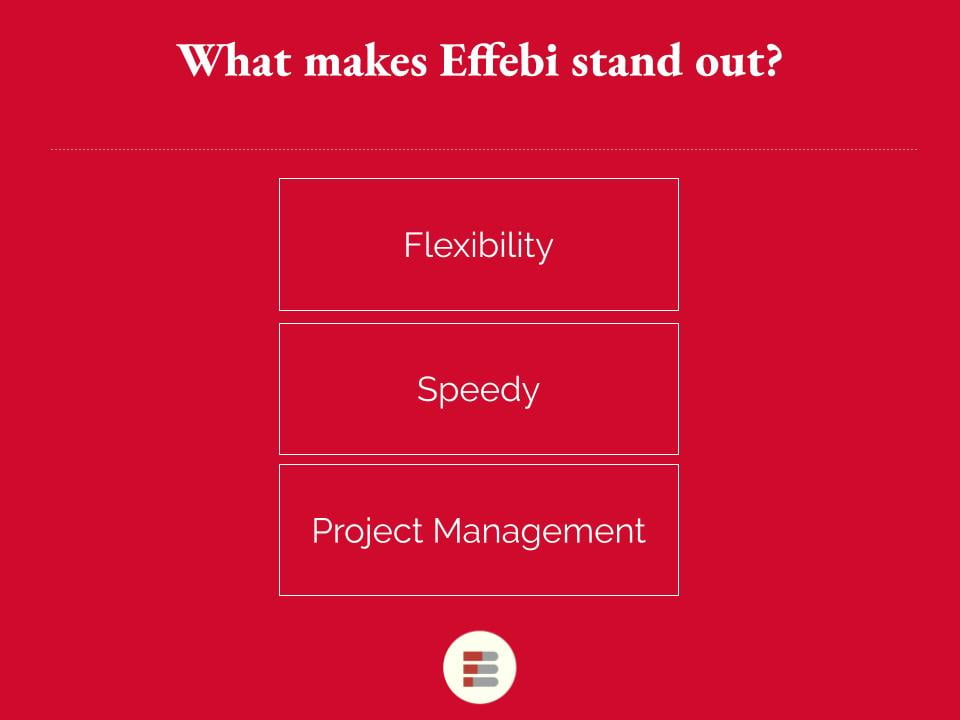
Have a look at the case study below to find out more about how Effebi satisfies customer needs:
Case Study: SIMON'S
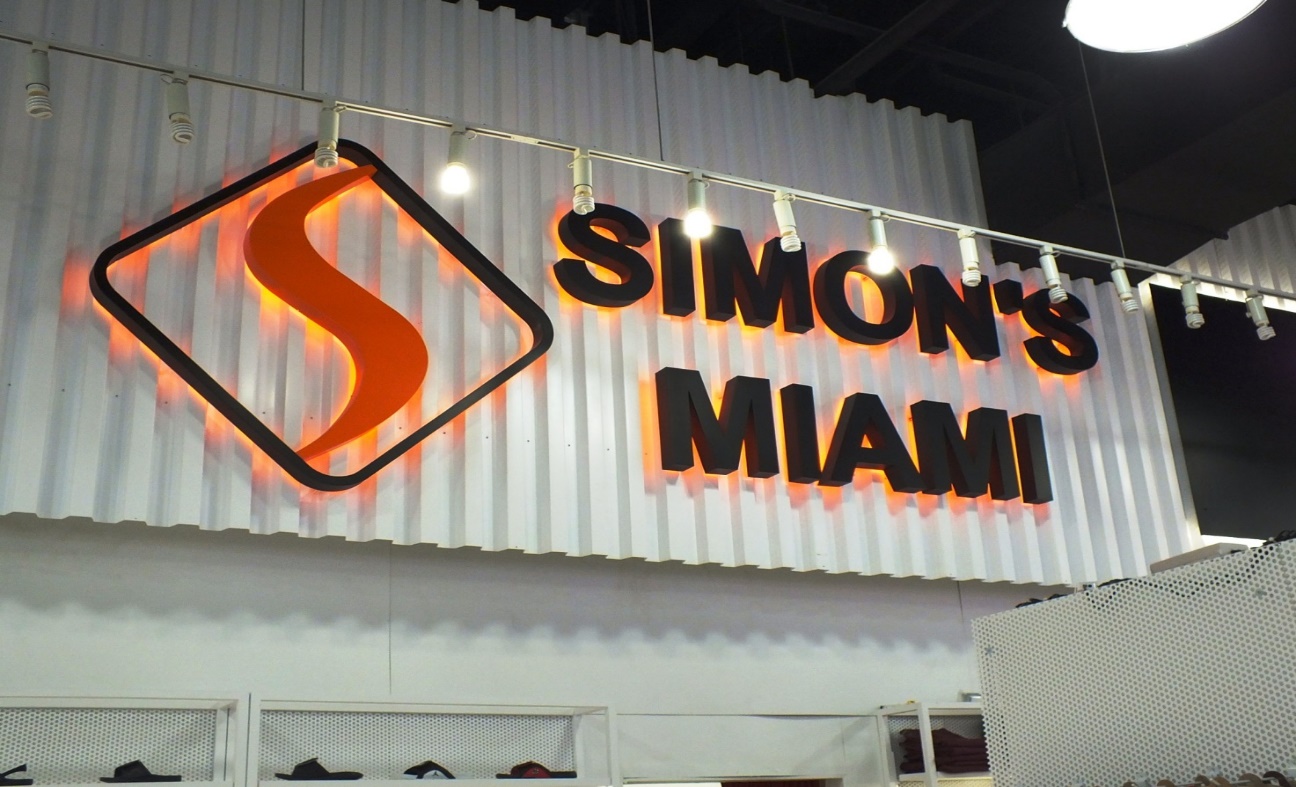
Simon's is a sports store in Miami aimed at shoppers in the medium-high bracket. The customer in question was looking for a new concept for his sales point and entrusted Effebi with the entire project. At Effebi, we took care of both the store concept and the production and installation of bespoke furniture.
The customer requested an obvious separation between the different sales areas and was looking to create a modern, urban atmosphere.
We designed a number of three-dimensional structures to be suspended and on the ground, with angular perforated surfaces that allowed shoppers to explore the space more easily. The use of geometric shapes helped create a modern, urban atmosphere while also dividing the different areas, which we were also able to differentiate using various materials, colours and lighting.
For the women's department was decorated with white colour and with gold back panels. We also came up with a different design for the Michael Jordan brand display, opting for anthracite wood and polished brass sheet metal. It is in this area that the brand’s famous sports shoes are displayed.
A display case made from self-supporting glass was constructed for the central footwear display.
White corrugated metal sheeting was installed in the upper part of the store to enhance the height of the space and to make the store feel brighter.
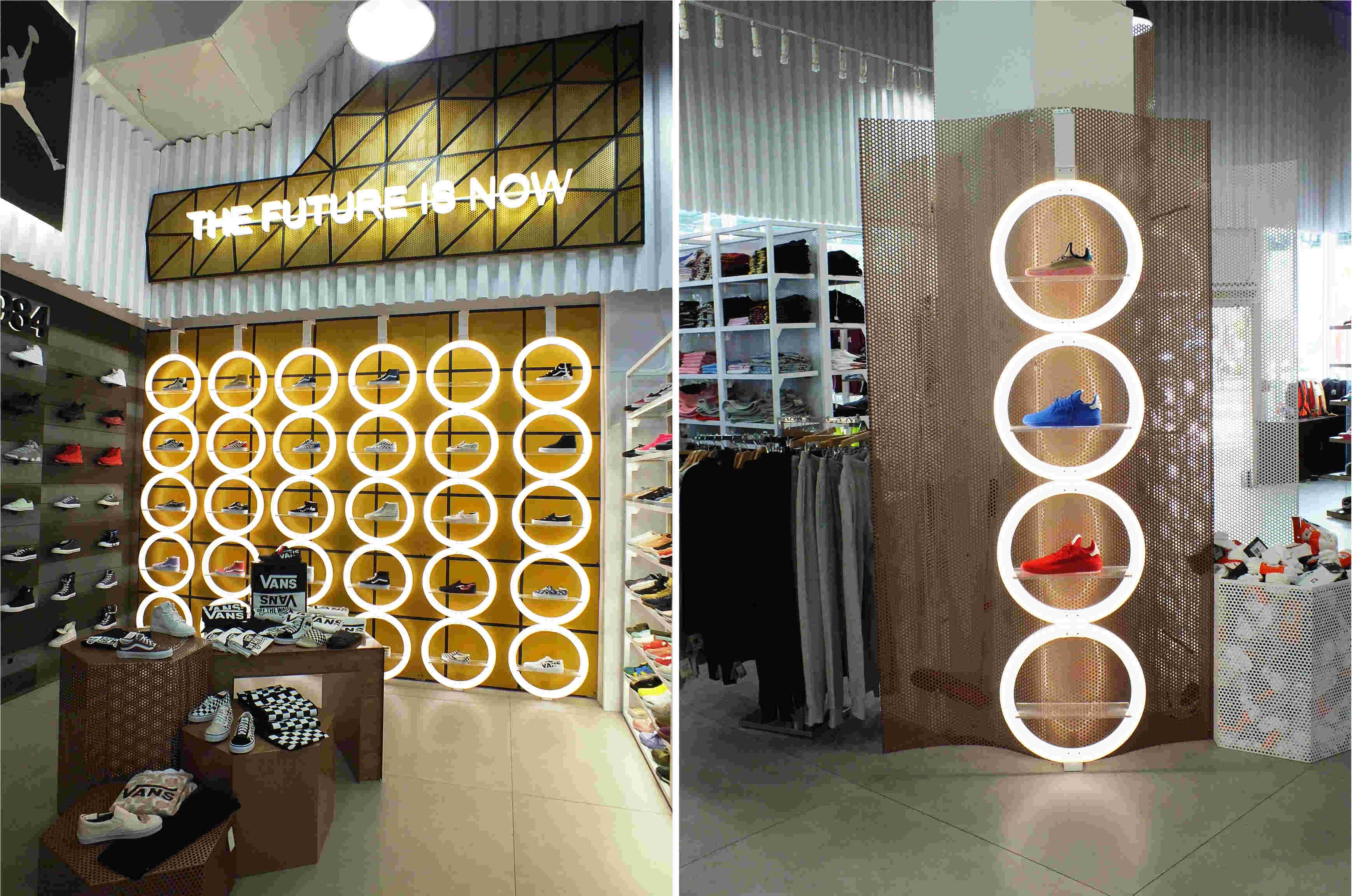
Effebi came up with this particular concept in order to draw attention to the products on display, satisfying the customer's functional and aesthetic needs while improving the overall in-store shopper experience.
Do you have a project to bring to life? Find out how we can help you.
 previous news
previous news





